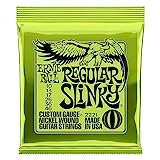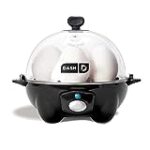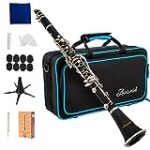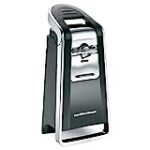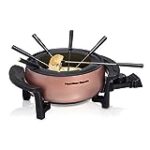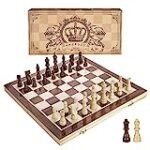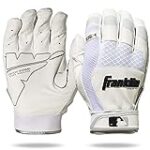🌅 Introduction
Welcome to our comprehensive electric guitar strings buying guide! Whether you’re a seasoned guitarist or just starting out, finding the perfect set of strings can make all the difference in your playing experience. At our store, we understand the importance of quality strings that suit your playing style and preferences. In this guide, we’ll delve into the world of electric guitar strings, exploring different materials, gauges, and brands to help you make an informed decision. From the bright tones of nickel-plated steel to the warm richness of pure nickel, we’ve got you covered. Let’s dive in and find the strings that will take your playing to the next level!
🏆 Our Top 5
- Ernie Ball Slinkys are played by legends around the world including Slash, Jimmy Page, Metallica, Eric Clapton, and more
- Preferred by players across many genres, Regular Slinky’s 10-to-46 gauge has become the industry standard
- Element Shield Packaging prolongs string life and keeps strings as fresh as the day they were made
- Bright, balanced tone
- Made in California, USA with the finest and freshest materials
- BESTSELLING SET – XL Nickel are our best-selling electric guitar strings, revered by players since 1974.
- VERSATILE, BRIGHT TONE – Nickel-plated steel wrap wire provides a bright, versatile electric guitar tone, great for a variety of musical genres.
- FOR THE ULTIMATE PERFORMANCE – Like all D’Addario electric guitar strings, XL Nickel are made with our proprietary Hex-Core, ensuring perfect intonation, consistent feel, and reliable durability.
- EARN REWARD POINTS - XL Nickel sets have a code on the recyclable VCI bag, which you can register to earn Players Circle points.
- MADE IN THE USA – XL Nickel electric guitar strings are made in the USA—drawn to our exacting specifications at our New York production facility.
- Pure nickel was commonly used in electric guitar strings of the '50s and '60s
- Warm, vintage tone
- One of the original Slinky gauges, Super Slinky "9s" have remained one of the most popular electric guitar string gauges for decades
- Signature Slinky feel
- Made in California, USA with the finest and freshest materials
- 3 packs of Regular Slinky electric guitar strings.
- Ernie Ball Slinkys are played by legends around the world including Slash, Jimmy Page, Metallica, Eric Clapton, and more.
- Preferred by players across many genres, Regular Slinky’s 10-to-46 gauge has become the industry standard.
- Bright, balanced tone.
- Made in California, USA with the finest and freshest materials.
- LEADING GUITAR STRINGS: Made with nickel plated steel wrap wire and our proprietary ultra-thin NANOWEB Coating. For a bright and vibrant longest-lasting tone along with a comfortable, smooth feel
- BRILLIANT TONE: Elixir Strings are often rated the best electric guitar strings, you can trust in our consistently reliable performance. From our light electric strings to our heavier gauges
- CORROSION RESISTANT: The NANOWEB Coating protects from tone-deadening sweat, corrosion, humidity and rust. Elixir Strings retain their out-of-the-box tone longer than other coated or uncoated strings
- MADE IN THE USA: Elixir Strings are lab- and field-tested and made to exacting specifications in our state of the art facility. Versatile and durable, they keep your guitar always sounding its best
- CONTENTS: 1x Single Pack of Elixir Electric Guitar Strings, Nickel Plated Steel with NANOWEB Coating, Longest-Lasting Bright Tone with Comfortable Smooth Feel, 6 String Set, Medium 11-14-18-28-38-49
🤔 How to choose?
1. Gauge Matters: Finding the Right String Thickness
When it comes to electric guitar strings, one of the most important factors to consider is the gauge or thickness of the strings. The gauge affects the playability, tone, and overall feel of your instrument.
**Choosing the right gauge** is crucial as it can greatly impact your playing style. Lighter gauge strings, such as 9-42, are easier to bend and fret, making them ideal for beginners or players who prefer a lighter touch. On the other hand, heavier gauge strings, like 11-48, offer more resistance and produce a fuller tone, making them suitable for players who prefer a heavier attack or play in lower tunings.
2. Material Matters: Exploring Different String Materials
The material used in electric guitar strings also plays a significant role in determining the tone and longevity of the strings. There are several common string materials to choose from, each with its own unique characteristics.
**Nickel-plated steel** strings are the most popular choice due to their balanced tone, durability, and affordability. They provide a bright and articulate sound, making them suitable for a wide range of musical genres.
**Stainless steel** strings, on the other hand, offer a brighter and more aggressive tone, making them ideal for players who want to cut through the mix. They also have excellent resistance to corrosion, ensuring a longer lifespan.
3. Coated or Uncoated: Considering String Coatings
Coated strings have a thin layer of polymer coating that helps to prolong their lifespan by protecting them from dirt, sweat, and corrosion. While coated strings tend to be more expensive, they offer a longer playing life and retain their tone for a longer period.
**Uncoated strings**, on the other hand, provide a more natural feel and tone. They are often favored by players who prefer the traditional sound and feel of uncoated strings. However, they may require more frequent string changes due to their shorter lifespan.
4. Playing Style: Matching Strings to Your Playing Style
Your playing style should also be taken into consideration when choosing electric guitar strings. Different playing techniques and musical genres may require specific string characteristics.
For example, if you are a blues or jazz player who enjoys bending strings and playing with a lighter touch, lighter gauge strings would be a suitable choice. On the other hand, if you are a heavy metal shredder who prefers aggressive playing and drop tunings, heavier gauge strings with a thicker core would be more appropriate.
5. Experimentation: Finding Your Perfect Match
Ultimately, the best way to find the perfect electric guitar strings for you is through experimentation. Every guitarist has their own unique preferences and playing style, so it’s important to try out different gauges, materials, and brands to find what works best for you.
**Don’t be afraid to try something new** and step out of your comfort zone. You may discover a new favorite string that enhances your playing experience and inspires your creativity. Remember, the journey of finding the perfect electric guitar strings is just as important as the destination.
💡 What to Look for in a electric guitar strings?
1. Gauge: Finding the Right Thickness
When it comes to electric guitar strings, one of the most important factors to consider is the gauge, or thickness, of the strings. The gauge you choose can greatly impact the playability and tone of your guitar.
The gauge of a string refers to its diameter, typically measured in thousandths of an inch. Lighter gauge strings, such as 9-42, are thinner and easier to bend, making them ideal for beginners or players who prefer a more flexible feel. On the other hand, heavier gauge strings, like 11-49, offer a fuller tone and are better suited for players who prefer a more aggressive playing style.
It’s important to note that the gauge of your strings can also affect the tension on your guitar’s neck. Lighter gauge strings exert less tension, while heavier gauge strings exert more. This means that if you switch from light to heavy gauge strings, you may need to adjust the truss rod on your guitar to compensate for the change in tension.
2. Material: Exploring Different Options
Another crucial aspect to consider when choosing electric guitar strings is the material they are made of. Different materials can produce different tones and offer varying levels of durability.
One of the most common materials used for electric guitar strings is nickel-plated steel. These strings provide a balanced tone with a bright attack and good sustain. They are also known for their durability, making them a popular choice among many guitarists.
Another popular option is stainless steel strings, which offer a brighter and more articulate tone. These strings are particularly well-suited for players who want to achieve a crisp and clear sound. However, stainless steel strings may not be as durable as nickel-plated steel strings and can be harder on your frets.
3. Coating: Enhancing Longevity
Coated strings are another option to consider when purchasing electric guitar strings. These strings are treated with a thin layer of polymer coating, which helps to prolong their lifespan by protecting them from dirt, sweat, and corrosion.
While coated strings may be more expensive than their uncoated counterparts, they can be a worthwhile investment for players who want their strings to last longer. Coated strings also tend to have a smoother feel, reducing finger noise and making them easier to play.
In conclusion, when shopping for electric guitar strings, it’s important to consider the gauge, material, and coating options available. Finding the right gauge for your playing style and preferences can greatly enhance your playing experience. Additionally, exploring different materials can help you achieve the desired tone for your music. Lastly, considering coated strings can provide added longevity and a smoother playing experience. Remember, the choice of strings is a personal one, so don’t be afraid to experiment and find the perfect set for you.
🔍 How we picked?
1. Quality Matters
When it comes to electric guitar strings, quality is of utmost importance. The strings you choose can greatly impact the sound and playability of your instrument. Therefore, it is crucial to pick strings that are well-made and durable.
One key factor to consider is the material used in the construction of the strings. Different materials produce different tones, so it’s important to choose the one that suits your playing style and musical preferences. For example, nickel-plated steel strings are known for their balanced tone and versatility, making them a popular choice among guitarists. On the other hand, pure nickel strings offer a warmer and vintage sound, perfect for blues and classic rock genres.
Another aspect to consider is the gauge of the strings. The gauge refers to the thickness of the strings, and it can greatly affect the playability and feel of your guitar. Lighter gauge strings are easier to bend and fret, making them ideal for beginners or players who prefer a more effortless playing experience. On the other hand, heavier gauge strings offer more sustain and a fuller tone, making them a great choice for players who want a thicker sound.
2. Consider Your Playing Style
When choosing electric guitar strings, it’s important to take your playing style into account. Different genres and playing techniques require different types of strings. For example, if you’re a heavy metal guitarist who frequently uses aggressive picking and palm muting, you might want to opt for thicker gauge strings that can handle the extra tension and provide a powerful tone.
On the other hand, if you’re a jazz guitarist who focuses on smooth and melodic playing, you might prefer lighter gauge strings that allow for more flexibility and articulation. It’s also worth considering coated strings, which are designed to last longer and resist corrosion, making them a great choice for players who perform frequently or have sweaty hands.
3. Budget Considerations
While it’s important to invest in high-quality strings, it’s also essential to consider your budget. Electric guitar strings come in a wide range of prices, and it’s possible to find great options at various price points.
Keep in mind that more expensive strings are not always better. There are affordable options that offer excellent tone and durability. It’s all about finding the right balance between quality and price. Don’t be afraid to experiment with different brands and models to find the strings that suit your needs and budget.
In conclusion, when picking electric guitar strings, prioritize quality, consider your playing style, and be mindful of your budget. By taking these factors into account, you can find the perfect strings that enhance your playing experience and bring out the best in your electric guitar.
💬 Frequently asked questions about electric guitar strings
1. What are the different types of electric guitar strings?
There are several types of electric guitar strings available on the market, each offering a unique sound and feel. The most common types include nickel-plated steel, stainless steel, and pure nickel. Nickel-plated steel strings are the most popular choice among guitarists due to their bright tone and excellent durability. Stainless steel strings, on the other hand, offer a brighter and more aggressive tone, making them ideal for genres like heavy metal. Pure nickel strings provide a warmer and vintage tone, perfect for blues and classic rock.
2. How do I choose the right gauge for my electric guitar strings?
Choosing the right gauge for your electric guitar strings depends on your playing style and personal preference. Lighter gauge strings, such as 9-42, are easier to bend and fret, making them ideal for beginners and players who prefer a more effortless playing experience. Medium gauge strings, like 10-46, offer a balanced tone and are suitable for a wide range of playing styles. Heavy gauge strings, such as 11-49, provide a thicker tone and are preferred by players who require more tension for aggressive playing or downtuning.
3. How often should I change my electric guitar strings?
The frequency of string changes depends on various factors, including how often you play, your playing style, and the environment in which you play. As a general rule of thumb, it is recommended to change your electric guitar strings every 2-3 months or sooner if they start to lose their brightness, sustain, or feel rough to the touch. However, some guitarists prefer the sound of slightly worn-in strings and may choose to change them less frequently.
4. Can I use acoustic guitar strings on an electric guitar?
While it is technically possible to use acoustic guitar strings on an electric guitar, it is not recommended. Acoustic guitar strings are designed to produce a louder and fuller sound, which can cause issues with the magnetic pickups on an electric guitar. Additionally, acoustic guitar strings are usually made of bronze or phosphor bronze, which can result in a duller and less responsive tone when used on an electric guitar. It is best to use strings specifically designed for electric guitars to achieve the optimal sound and playability.
5. How do I extend the lifespan of my electric guitar strings?
To extend the lifespan of your electric guitar strings, it is important to keep them clean and free from dirt, sweat, and oils. After each playing session, wipe down the strings with a clean cloth to remove any residue. Additionally, washing your hands before playing can help prevent the buildup of oils on the strings. Using a string cleaner or lubricant can also help reduce friction and prolong the life of your strings. Finally, storing your guitar in a case or gig bag when not in use can protect the strings from dust and humidity, further extending their lifespan.
Remember, finding the right electric guitar strings is a personal journey that depends on your playing style, genre preferences, and desired tone. Experimenting with different types and gauges can help you discover the perfect strings that will enhance your playing experience and inspire your creativity.
Last update on 2024-07-26 / Affiliate links / Images from Amazon Product Advertising API
